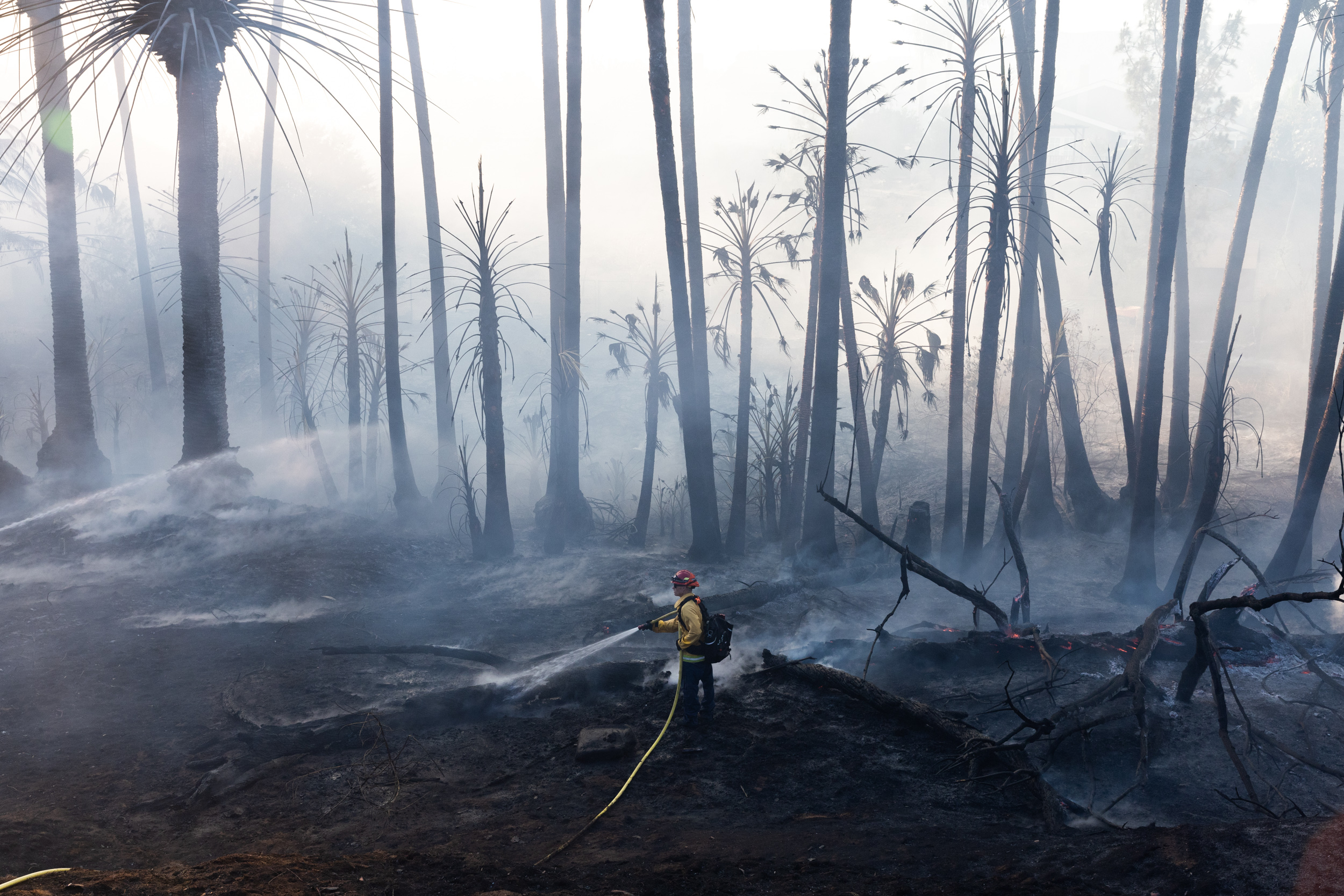When the rivers run dry
The summer of 2022’s ominous climate message


A free daily email with the biggest news stories of the day – and the best features from TheWeek.com
You are now subscribed
Your newsletter sign-up was successful
The contention that climate change isn't real has gone poof! in a wisp of smoke, like a piece of paper held under a magnifying glass on a 100-degree day. But there are still those who contend that rapidly reducing the use of fossil fuels would be too painful a price to pay, and that rather than succumb to "alarmism," humanity should learn to "adapt" to a hotter planet. The summer of 2022 has put the adaptation option under the magnifying glass. Unprecedented heat and drought have scorched China for months, and dried up so many rivers — including the mighty Yangtze — that authorities are instituting rolling blackouts because of lost hydropower. In Europe, 104-degree days and prolonged drought baked a shocked Britain brown, revealed long-submerged relics in the Tiber River and sunken German warships in the Danube, and shut down popular river cruises on the Rhine. In the American Southwest, the worst megadrought in 1,200 years may lead to major water usage cuts for seven sunblasted states dependent on a waning Colorado River. Is turning off the water an adaptation?
A hotter atmosphere traps a lot of moisture, so that when rain does arrive, it sometimes comes down with biblical ferocity. In recent weeks, a spate of "1,000-year floods" have submerged Kentucky, Dallas, and other parts of the U.S., destroying thousands of homes. In Pakistan, "a monsoon on steroids" has flooded close to a third of the country, killing more than 1,100 people and inflicting misery on 33 million. All this comes after just 2 degrees Fahrenheit of warming so far. Without a dramatic reduction in greenhouse gases, we may be heading for a rise of 3 degrees F in two decades, with more to come. As the pandemic has shown, our species is prone to kicking the can down the road, to selfishly putting off the change and sacrifice needed to avoid collective future catastrophe. But what if the future shows up early?
This is the editor's letter in the current issue of The Week magazine.
The Week
Escape your echo chamber. Get the facts behind the news, plus analysis from multiple perspectives.

Sign up for The Week's Free Newsletters
From our morning news briefing to a weekly Good News Newsletter, get the best of The Week delivered directly to your inbox.
From our morning news briefing to a weekly Good News Newsletter, get the best of The Week delivered directly to your inbox.
A free daily email with the biggest news stories of the day – and the best features from TheWeek.com
William Falk is editor-in-chief of The Week, and has held that role since the magazine's first issue in 2001. He has previously been a reporter, columnist, and editor at the Gannett Westchester Newspapers and at Newsday, where he was part of two reporting teams that won Pulitzer Prizes.
-
 The ‘ravenous’ demand for Cornish minerals
The ‘ravenous’ demand for Cornish mineralsUnder the Radar Growing need for critical minerals to power tech has intensified ‘appetite’ for lithium, which could be a ‘huge boon’ for local economy
-
 Why are election experts taking Trump’s midterm threats seriously?
Why are election experts taking Trump’s midterm threats seriously?IN THE SPOTLIGHT As the president muses about polling place deployments and a centralized electoral system aimed at one-party control, lawmakers are taking this administration at its word
-
 ‘Restaurateurs have become millionaires’
‘Restaurateurs have become millionaires’Instant Opinion Opinion, comment and editorials of the day
-
 Earth is rapidly approaching a ‘hothouse’ trajectory of warming
Earth is rapidly approaching a ‘hothouse’ trajectory of warmingThe explainer It may become impossible to fix
-
 The plan to wall off the ‘Doomsday’ glacier
The plan to wall off the ‘Doomsday’ glacierUnder the Radar Massive barrier could ‘slow the rate of ice loss’ from Thwaites Glacier, whose total collapse would have devastating consequences
-
 Can the UK take any more rain?
Can the UK take any more rain?Today’s Big Question An Atlantic jet stream is ‘stuck’ over British skies, leading to ‘biblical’ downpours and more than 40 consecutive days of rain in some areas
-
 As temperatures rise, US incomes fall
As temperatures rise, US incomes fallUnder the radar Elevated temperatures are capable of affecting the entire economy
-
 The world is entering an ‘era of water bankruptcy’
The world is entering an ‘era of water bankruptcy’The explainer Water might soon be more valuable than gold
-
 Climate change could lead to a reptile ‘sexpocalypse’
Climate change could lead to a reptile ‘sexpocalypse’Under the radar The gender gap has hit the animal kingdom
-
 The former largest iceberg is turning blue. It’s a bad sign.
The former largest iceberg is turning blue. It’s a bad sign.Under the radar It is quickly melting away
-
 How drones detected a deadly threat to Arctic whales
How drones detected a deadly threat to Arctic whalesUnder the radar Monitoring the sea in the air
